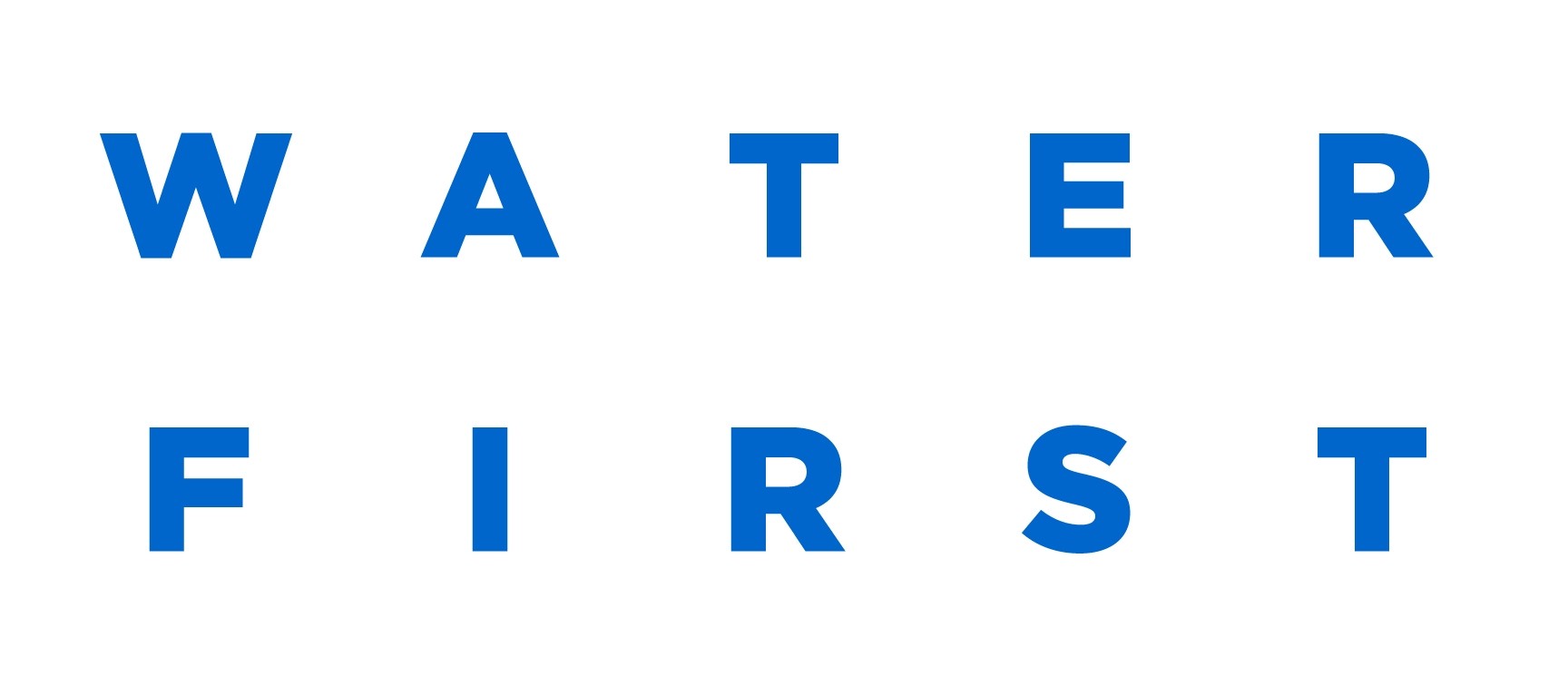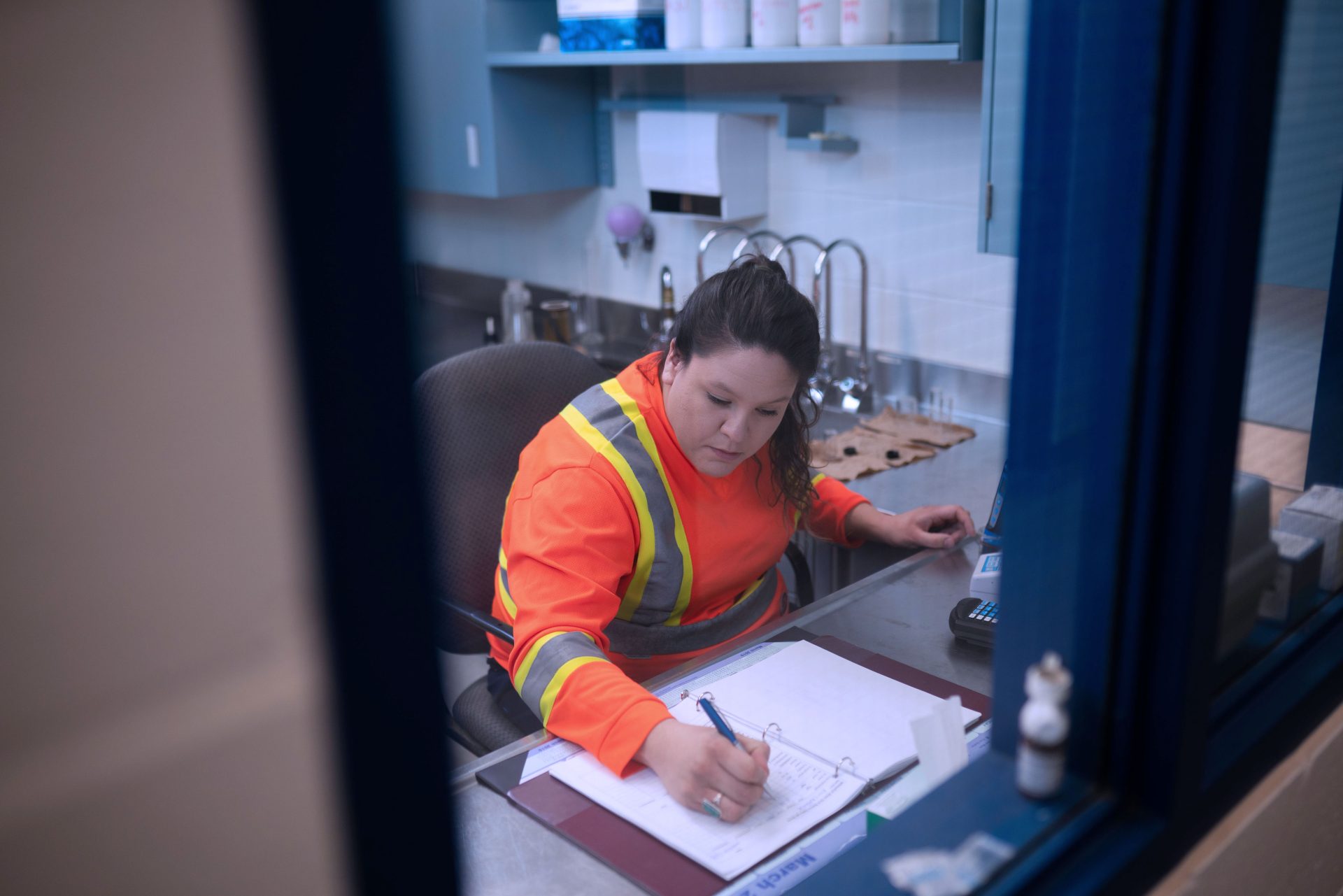The latest news and updates on our programs.
Contents:
Contents:
Our Guiding Philosophy
During a staff retreat in the fall of 2019, the Water First team reflected on the essential qualities of our work that produce our strongest relationships and greatest achievements. Our Strands of Success stem from this reflection. These Strands are deeply woven into our operations, how we ensure our work is meeting community-identified needs, as well as in the design and delivery of our education and training programs.
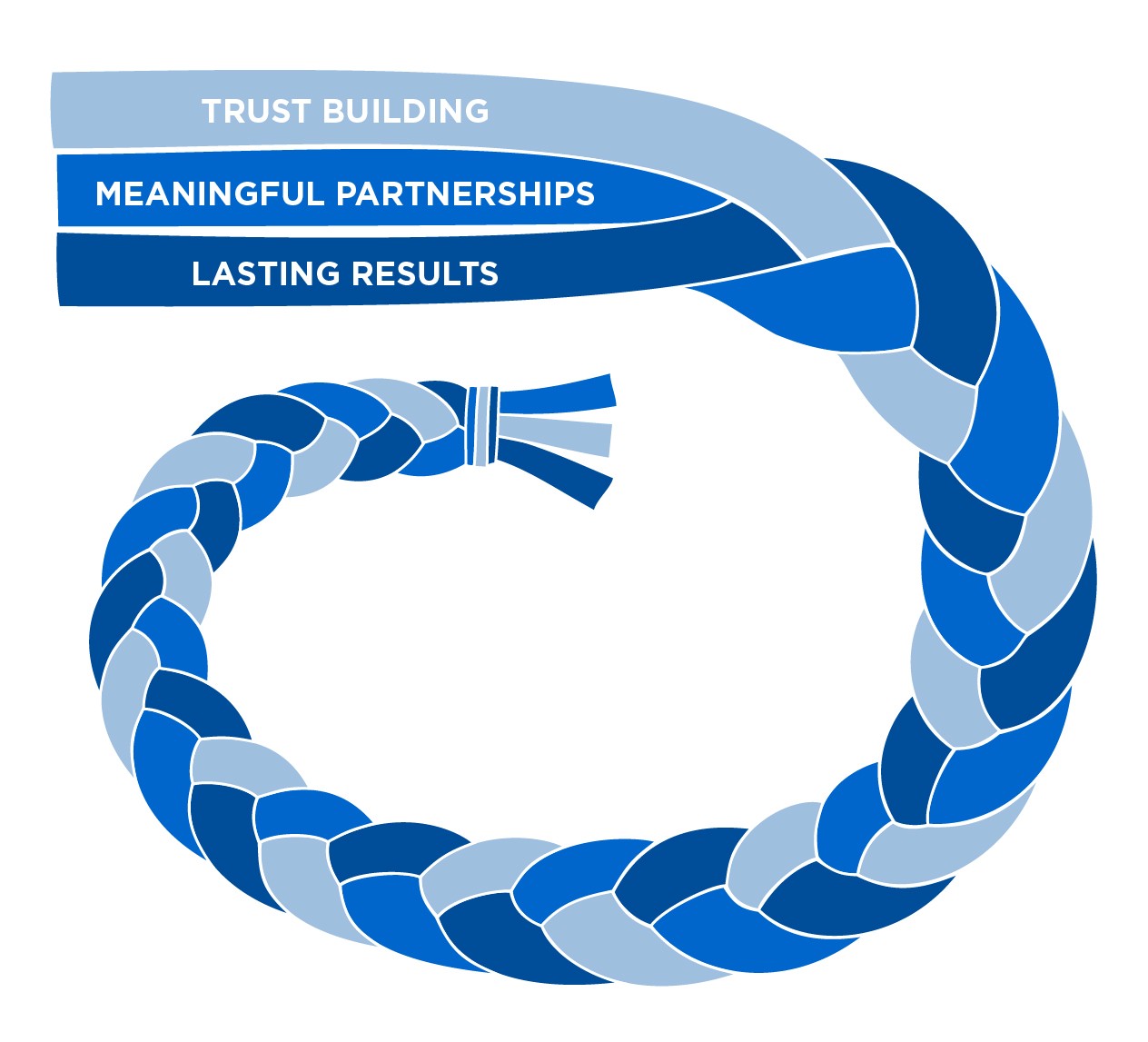
Trust Building
Ensure that respect, honesty, transparency, humility, and integrity are fundamental to our engagements.
Meaningful Partnerships
Fully committed to collaborations built on open communication, mutual knowledge exchanges, and common goals.
Lasting Results
Consistently strive toward sustainable outcomes, with skills and benefits remaining within Indigenous communities for the long-term.
To achieve and maintain our mandate, we strive to braid these three strands across all aspects of our work. They reflect our organizational values and are integrated into our everyday work. The strands are critical to our success and, over the years, have led to a strong up-take of our programs by our partners.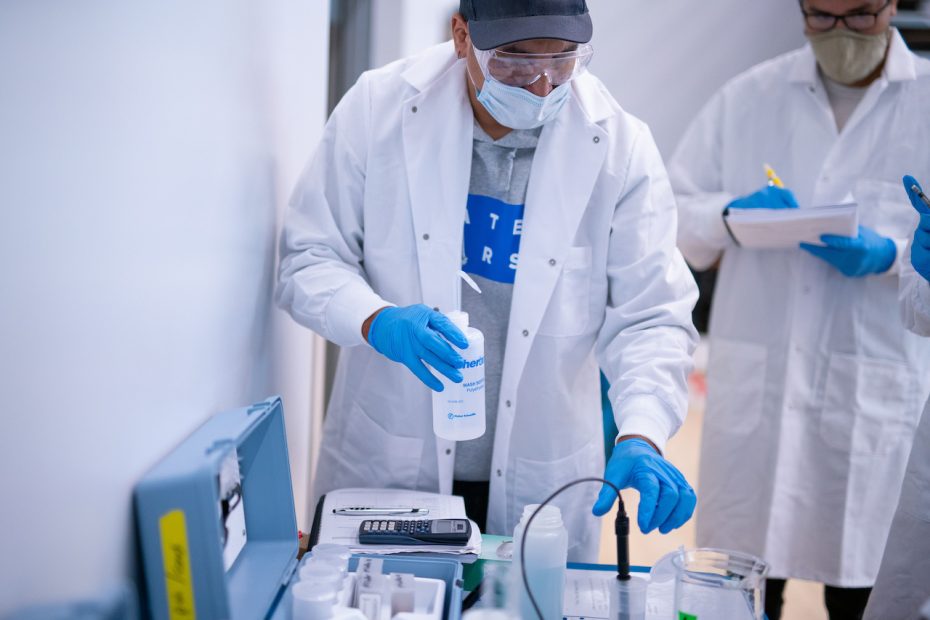
Extension of the Bimose Internship and Upcoming Training
We are excited to announce that the Bimose Internship has been extended to continue through to the end of September. This extension offers interns opportunities for more training, more preparation time to challenge exams, including Wastewater Management and Level 1 Operator, and more hands-on work experience in the treatment plants. Group training sessions, tutorials, and one on one individualized sessions will continue in full to support the interns reach their professional goals.
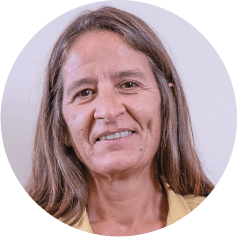
Meaningful Partnerships
“Water First doesn’t just come into the community and take and leave. They come into the community and they bring and collaborate. They do consultation with the community on how [their] programs should work. This is one of the reasons I support them.”
Ogamauh annag qwe (Sue Chiblow)
Garden River First Nation
First Nations Advisory Council Member
Sue Chiblow shares why she supports the work we do with Indigenous communities.
Gearing up for the New Internship in Georgian Bay
Training Designed to Meet a Need
Nobody understands the evolving drinking water challenges and needs of Indigenous communities more than the people who live there. Our training programs are designed to meet the needs that have been identified by our Indigenous community partners. With drinking water challenges, individuals who run treatment plants are vital to sustainable solutions.
Watch this clip where Mike Murray, project coordinator for the Waabnoong Bemjiwang Association of First Nations (WBAFN) Water and Wastewater Treatment Systems HUB, explains how the Water First Internship will benefit the First Nations communities in the Georgian Bay area.
Recruitment and Hiring
Water First and our community partners are very excited to share that 14-16 interns from 8 communities (pictured above) will be hired to train as drinking water operators starting June 2021. We are currently gearing up for a combination of virtual and in-person recruitment aimed at building community awareness and generating excitement around the Internship. From our previous experiences, we have found this to be an area where Water First can provide valuable support. Watch for updates this summer when we introduce the new cohort of Water First interns!
Watch this clip where Mike Murray, project coordinator for the Waabnoong Bemjiwang Association of First Nations (WBAFN) Water and Wastewater Treatment Systems HUB, explains how the Water First Internship will benefit the First Nations communities in the Georgian Bay area.
Recruitment and Hiring
Water First and our community partners are very excited to share that 14-16 interns from 8 communities (pictured above) will be hired to train as drinking water operators starting June 2021. We are currently gearing up for a combination of virtual and in-person recruitment aimed at building community awareness and generating excitement around the Internship. From our previous experiences, we have found this to be an area where Water First can provide valuable support. Watch for updates this summer when we introduce the new cohort of Water First interns!
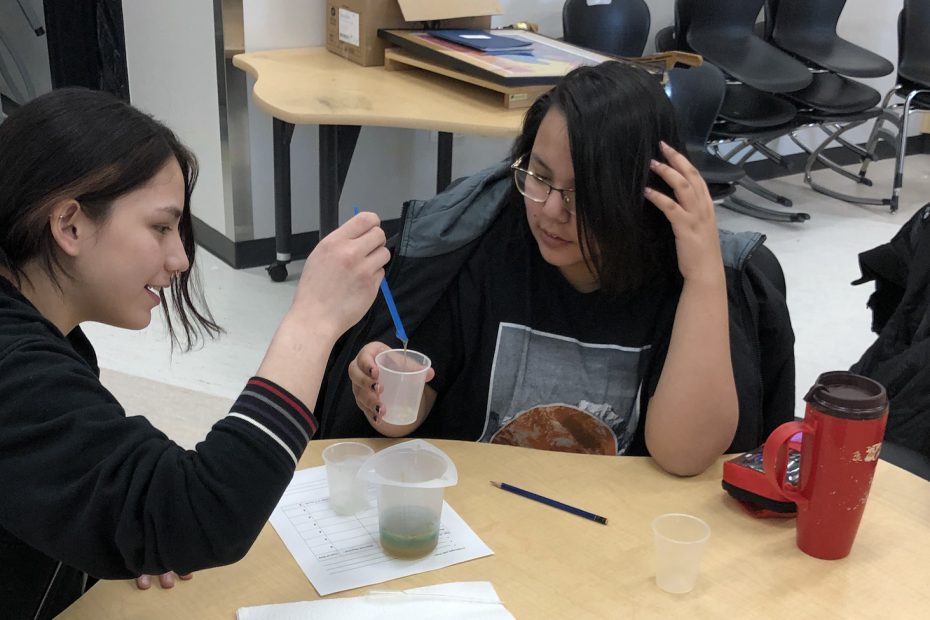
Showcasing Learning and Connections Made
Learning happens with experience. And applying what we have learned through our virtual delivery continues to strengthen our school-aged youth programming. Our program that teaches students about watersheds and the importance of source water protection, What’s in Your Water, was originally designed as a face-to-face workshop series. Due to COVID restrictions, with the support of funders like the Ontario Trillium Foundation, we were able to adapt our programming to be delivered virtually. We piloted the virtual delivery with Beausoleil First Nation and the Christian Island Elementary School in the fall.
The students from Christian Island Elementary School created a presentation that summarized their learning throughout the program.
Measuring success in education programs is often through students showcasing what they have learned and if possible how the students apply this learning. This showcase needs to be flexible — particularly when it comes to virtual delivery — and can be formal or just through observation.
The students from Christian Island Elementary School created a presentation that summarized their learning throughout the program.
Dillon Koopmans, our Educational Programs Manager summed it up this way: “When the students did their presentation and shared their learning with us, it felt like the student-led reflection had a culminating effect. The students could reflect and clearly record what they had learned. We had accomplished true learning through virtual delivery in the times of COVID.”
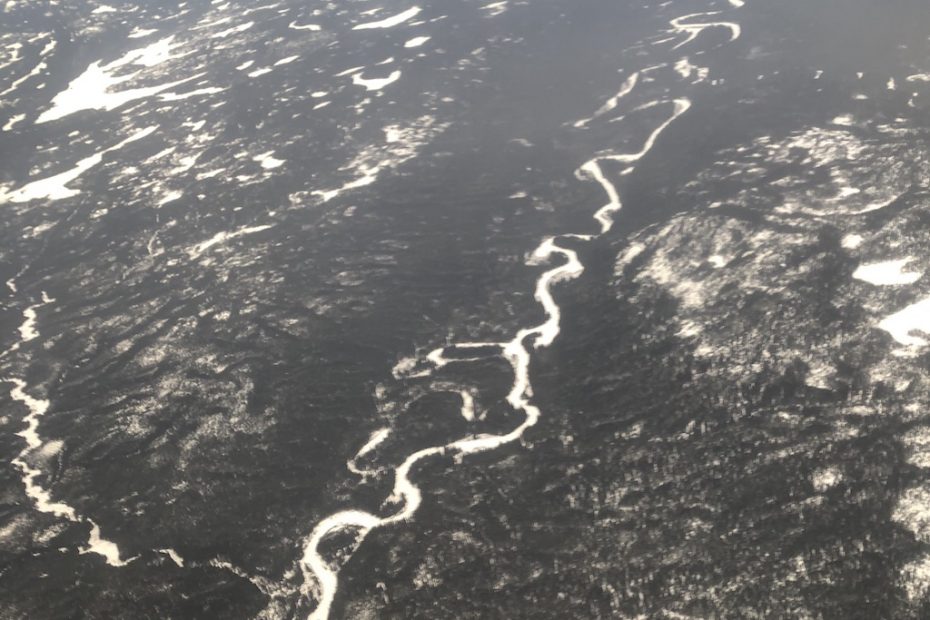
Skills training to meet a community’s vision
While working with many Indigenous communities, we have heard time and again their vision of Indigenous-led land management. Communities want to manage their water resources and track the effects of industry and climate change. As a result, communities are seeking ways to strengthen their technical capacity to do so. Environmental technical training is a well-established field. What sets Water First apart is our approach.
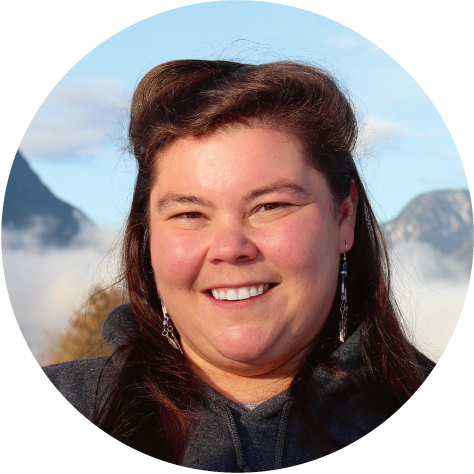
In My Words
Adrianna Bilinski
Indigenous School Engagement Coordinator
Virtual Program Delivery with
Sagamok First Nation
In My Words
Adrianna is an Ontario Certified Teacher, and a woman of Ojibwe descent from Beausoleil First Nation. She holds Bachelor degrees in History, Gender Studies, and Education. As an educator, her primary focus is to raise awareness of the historical and current question of equity and equality in Canada through First Nations, Métis, and Inuit views.
In this story, Adrianna shares her personal experience delivering the What’s in Your Water program virtually with Sagamok First Nation.
First, we consult with our Indigenous partners about their long-term environmental water goals. By understanding their goals, we help to determine priority areas and local training needs. Then, we design a training program based on a project that is carried out by the interns and aligns with the long-term vision of the community.
This map features where our Environmental Water Program Team have worked and features two training programs that are set to start this summer:
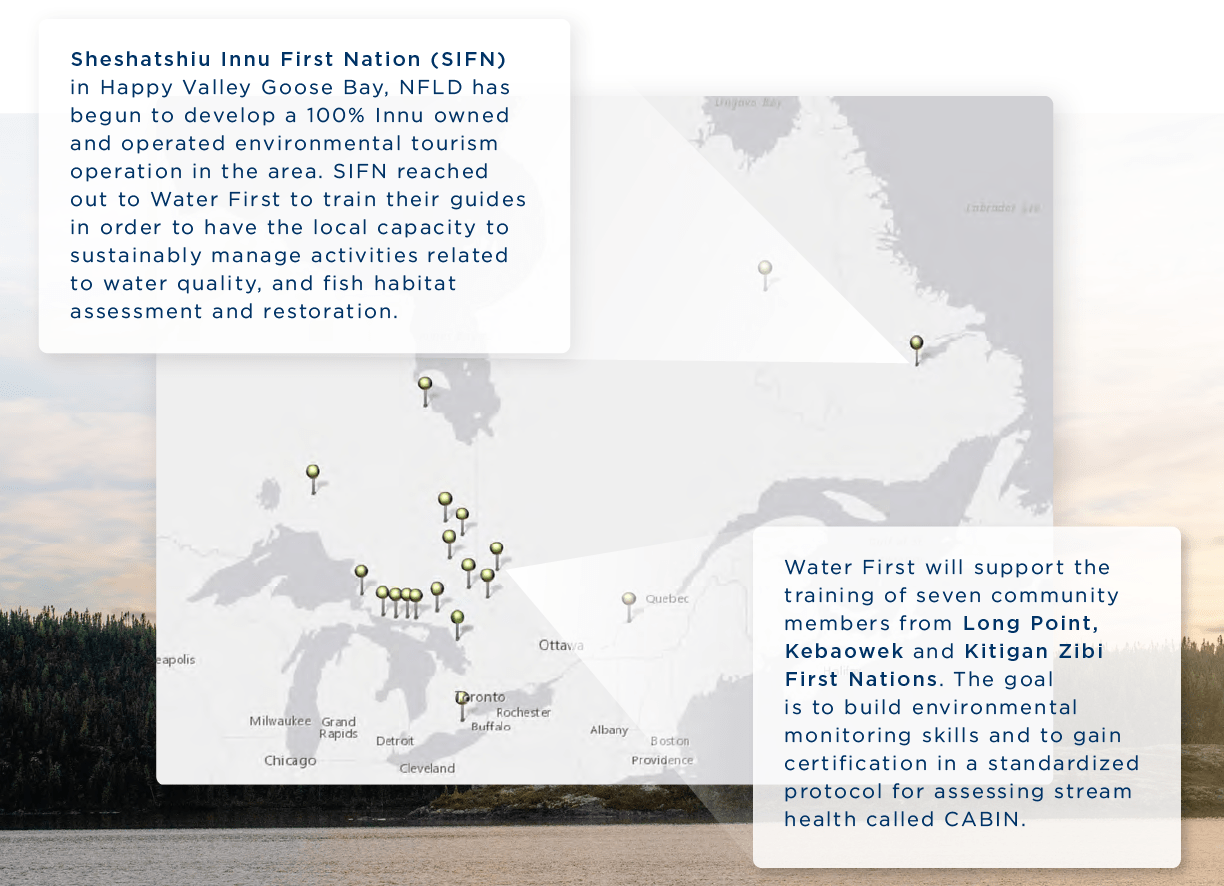
Your Question:
"How does Water First support the interns to help them succeed?"
Watch John Millar, our Executive Director and Founder, explain how we invest in each individual to meet their needs and offer support to help overcome barriers to full participation in the program.
How does Water First support the interns to help them succeed?
Your Questions Answered
Recently, we have been receiving very interesting questions from our support base. For each newsletter, we will be choosing one to feature and provide an avenue for a response.
Have you ever wondered how a spawning shoal is restored? Or maybe you want to know more about what interns learn about water treatment? What about what kinds of things the kids in our youth programs get most excited about?

